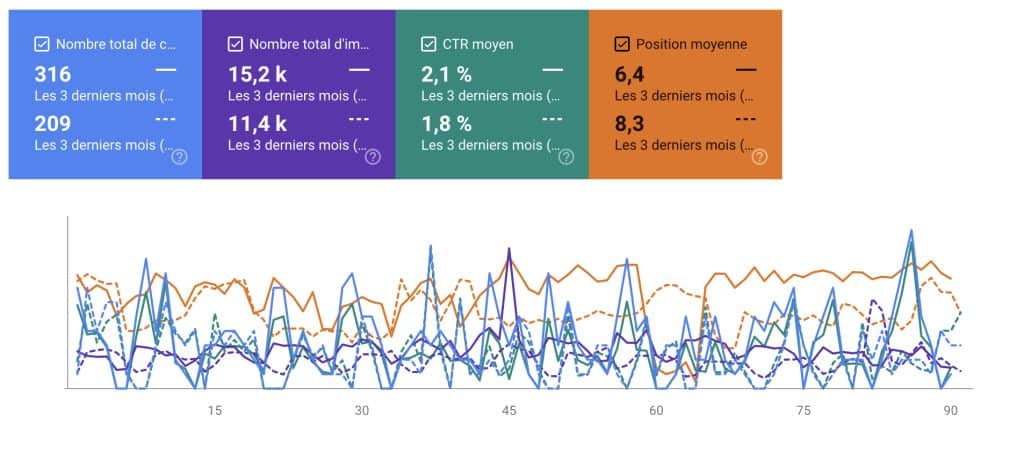
The Truth About Search Algorithms
If you’ve been keeping an eye on SEO trends, you know how volatile rankings can be. One day you’re up, the next you’ve dropped a spot or two. It’s all thanks to a formula, or algorithm, as secretive as the Coke recipe. In fact, no one really knows Google’s or ChatGPT’s exact search results’ algorithm. Or any of the countless search tools out there.*
Search tools want to deliver the best result to every search a user gives. That means writing content users find useful and unique.
Good Content as the Ultimate Ranking Factor
With the rise of AI, one thing has become crystal clear: content quality matters more than ever. Search engines are working harder to weed out repetitive, unhelpful, and low-effort content. Their goal? Prioritize informative, honest, and useful results.
That means no fluff nor filler.
At WS, we’ve been championing “good content”, or healthy content, for years. That includes focusing on long-tail keywords, writing for actual users, white hat SEO, and continuously refining our approach.
The results are mixed, historically. Long-tail keywords performed well, but competitive ones were tough — often requiring strong backlinks, domain authority, and volume to break through.
But now users are searching differently.
As AI tools become more popular, users are searching more conversationally. Instead of typing “urban furniture,” they might search:
“What’s the best type of urban furniture for small parks?”
This shift favors detailed how-tos, examples, and genuine expertise. This is exactly the kind of content WS has been creating.
Search Console Results Show minimum 30% Increase and Top 3 Rankings
Recently, two of our SEO customers had a 30% increase in YoY rankings, climbing into as high as the top 3 for highly competitive keywords. One of those was ‘mobilier urbain’ for Area. This was a historically tough keyword to get on page one due to competition at an international level.

What changed?
- Full revisions of product descriptions written by professional writers
- Reviewed and optimized page titles for SEO
- A new blog content template focused on clarity and originality
Google rewarded the effort, and as long as they continue producing unique, helpful, and relevant content, we expect that ranking to hold. It may take some time, but it’s worth it.
If you’ve been consistently publishing quality content over the last 12 months, now’s the time to track your progress. Open up your Google Search Console and watch how your rankings evolve, especially for those competitive keywords.
*So, How Many Search Tools Are There?
The top 10 search tools in the world shaping SEO today:
| Rank | Search Engine | Market Share (%) | Notes |
| 1 | 89.74 | Maintains dominance despite slight declines in recent years. | |
| 2 | Bing | 4.00 | Microsoft’s search engine, integrated with AI features like Copilot. |
| 3 | Yandex | 2.49 | Leading search engine in Russia, with a strong regional presence. |
| 4 | Yahoo! | 1.33 | Powered by Bing; maintains a niche user base. |
| 5 | DuckDuckGo | 0.79 | Privacy-focused search engine gaining steady traction. |
| 6 | Baidu | 0.62 | Dominant in China; limited global presence. |
| 7 | Naver | 0.30 | South Korea’s leading search engine. |
| 8 | Ecosia | 0.09 | Eco-friendly search engine that plants trees with ad revenue. |
| 9 | CocCoc | 0.08 | Vietnamese search engine catering to local users. |
| 10 | Sogou | 0.06 | Chinese search engine with a focus on language input tools. |
Source: https://gs.statcounter.com/search-engine-market-share
Though traditional search engines continue to dominate, AI-driven platforms are gaining traction. Here is a quick list of the current AI tools most used globally.
- ChatGPT: used for information retrieval and content generation.
- Google Gemini: aiming to integrate advanced AI capabilities into search.
- Microsoft Copilot: integrated into Microsoft’s suite for search and productivity tasks.
- Perplexity: An answer engine that summarizes online content to answer user queries.
- Claude AI: designed for business applications
- DeepSeek: An open-source AI platform from China positioning it as a competitive alternative in the AI space
- ERNIE Bot: Baidu’s AI chatbot, enhances search with natural language understanding and contextual responses.
Need a Boost? Let’s Talk SEO
Looking to improve your visibility and conversions? We offer expert SEO audits, reporting, and actionable recommendations tailored to your business. 😉